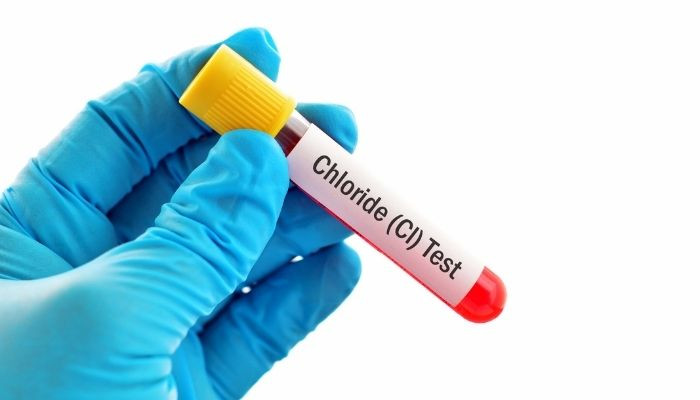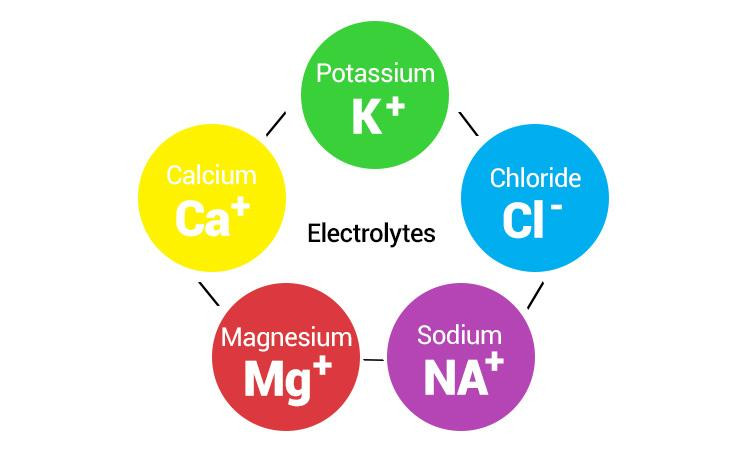Definition
A urine sodium test is a procedure conducted to measure the levels of sodium in the urine. Sodium is an electrolyte, a mineral with an electrical charge, that is essential for the proper functioning of the body and its cells. It also helps maintain the balance of acid and base chemicals in the body.
Sodium is mainly sourced from the foods consumed, such as biscuits, chips, and even medications. When sodium levels in the body rise or become excessive, the kidneys work to eliminate the surplus through urine. However, if kidney function is impaired, the kidneys may struggle to remove excess sodium, leading to potential imbalances.
Abnormal sodium levels in the urine, whether too high or too low, can indicate underlying kidney issues, dehydration, or other health concerns. This test may also be carried out to monitor the effectiveness of medications when a patient is undergoing treatment.
Indication
A urine sodium test is typically recommended by a doctor if the results from a sodium blood test show abnormal values. Additionally, this test may be conducted for the following purposes:
-
To monitor sodium levels in patients receiving treatment for specific diseases.
-
To diagnose kidney or liver conditions.
-
To identify the cause of high blood pressure (hypertension).
-
To assess fluid loss from the body, such as from vomiting or diarrhea.
-
To evaluate the effectiveness of ongoing therapy.
Contraindication
There are no known contraindications or conditions that would prevent someone from undergoing this test.
Preparation Before the Test
No special preparation is required before undergoing a urine sodium test. The test can be performed without the need for fasting. However, it is advised to consult with a doctor before the test, as certain medical conditions or medications could affect the accuracy of the results, causing them to not reflect the true condition of the individual.
Some medications that may interfere with the test results include:
-
Corticosteroids (used to reduce inflammation)
-
NSAIDs (Nonsteroidal Anti-Inflammatory Drugs) such as ibuprofen and aspirin
-
Diuretics (drugs that help eliminate excess water and salt through urine)
-
Prostaglandin drugs (used to treat conditions like glaucoma or gastritis)
Test Procedure
The urine sodium test can be conducted using either a random urine test or a 24-hour urine collection, depending on the patient’s condition or the doctor's recommendation.
In a random urine test, you will be asked to urinate into a special container. The healthcare provider will give you specific instructions on how to properly collect and store the sample. Once the sample is collected, it can be submitted for testing.
For a 24-hour urine test, you will need to collect all urine over the course of 24 hours in a special container. The first urine of the morning should not be collected. Then, after each urination throughout the day, you will collect the urine in the provided container. After 24 hours, the urine sample can be submitted for testing.
Here are the steps for properly collecting a urine sample:
-
Wash your hands thoroughly.
-
Clean your genital area using the wipes provided by the healthcare provider or doctor.
-
Collect the urine into the designated container, making sure not to touch the inside of the container to avoid contamination.
Normal and Abnormal Values
For adults, the normal range for urine sodium levels is:
-
Random urine test: 20 mEq/L
-
24-hour urine test: Between 40-220 mEq/L
The normal sodium levels in urine can vary depending on factors such as the amount of water and salt consumed, as well as age, gender, medical history, and the test method used.
It is important to note that different laboratories may report slightly different reference ranges due to variations in equipment or methods used for testing.
Results and Recommendations (Follow-up Tests)
Low Sodium Levels
If your urine sodium test results show low values (less than 20 mEq/L or less than 40 mEq/L), it is important to consult with a doctor. The doctor may recommend changes to your diet and lifestyle to improve your health, or in some cases, start specific treatments such as medications or intravenous fluids to help bring your sodium levels back to normal.
Low sodium levels in the urine can be indicative of several conditions or diseases, including:
-
Hyperaldosteronism (overproduction of aldosterone by the adrenal glands)
-
Dehydration
-
Diarrhea and fluid loss
-
Heart failure
-
Kidney disorders such as chronic kidney disease or kidney failure
-
Cirrhosis (liver scarring)
Normal Sodium Levels
If your urine sodium test results fall within the normal range, this suggests that you are likely maintaining a healthy lifestyle. It is important to continue with your current habits to prevent the development of conditions that could lead to either high or low sodium levels in your urine.
High Sodium Levels
If your urine sodium test results show high values (greater than 20 mEq/L or greater than 220 mEq/L), consulting with a doctor is essential. Your doctor may advise modifications to your diet and lifestyle or even start you on medications to help lower your urine sodium levels.
High urine sodium levels can be caused by several factors, including:
-
Use of certain medications, such as diuretics
-
Reduced function of the adrenal glands
-
Kidney inflammation leading to salt loss through urine
-
Excessive salt intake
Consult the Right Doctor
Adults with abnormal urine sodium test results can first consult a general practitioner, who can recommend further tests or initiate appropriate treatments based on the diagnosis. Additionally, an internist or a kidney and hypertension specialist may be consulted for more specialized care if needed.
In the case of pediatric patients, any abnormal results should be discussed with a pediatrician to ensure proper diagnosis and management.
For convenient consultations with a doctor, you can download the Ai Care application on the Play Store or App Store.
Looking for more information about laboratory, radiology, and other examination results? Click here!
- dr Nadia Opmalina
What is a Urine Sodium Test. (2021). Retrieved 22 August 2022, from https://www.webmd.com/a-to-z-guides/what-is-a-urine-sodium-test
Sodium Urine Test. (2019). Retrieved 22 August 2022, from https://www.ucsfhealth.org/medical-tests/sodium-urine-test
Sodium (Urine). (2022). Retrieved 22 August 2022, from https://www.urmc.rochester.edu/encyclopedia/content.aspx?contenttypeid=167&contentid=sodium_urine
Sodium Urine Test/ (2021). Retrieved 22 August 2022, from https://medlineplus.gov/ency/article/003599.htm#:~:text=The%20test%20is%20often%20used,many%20types%20of%20kidney%20diseases












